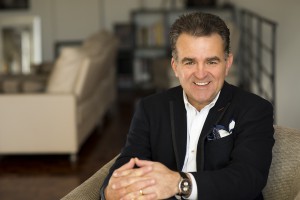Inner Image is the reputation and relationship you have with yourself (your values) regarding security, self-image, belonging, purpose, and competence. In the business world, Inner Image expresses the organisation’s corporate soul to realise its vision concerning research and development, financial objectives, acquisitions, divestitures, marketing and brand practices and positioning as an ‘employer of choice’. This is where M&A in Singapore comes in who have set of skills to help their client for merger or acquisitions.
An organisation’s corporate soul is not a mission statement – a mission statement expresses what the organisation wishes to be, not necessarily what it is. Though if you are penning a mission statement make sure that it does encapsulate the organisation’s soul, and if you don’t want to write down what you find, then it’s time to have a good hard look at the inner life of your organisation.
How we perceive ourselves is vital and will affect what we present to the world. A person’s wardrobe, a brand’s logo, a company’s mission statement – all of these are no more than the packaging of the inner self.
If we don’t have a clear sense of inner image then all the wardrobe strategies, strategic branding and carefully crafted mission statements we come up with are useless because they will come across as hypocritical, or even worse, utterly fake. These things need to be congruent reflections, not masks.
“Finding Yourself”
No wonder there are endless self-help books and Instagram mantras devoted to “finding yourself”. We live in a time when a clear and knowable sense of self is under attack.
Once upon a time, things were much more straightforward. Our values and sense of self were derived from our community, culture, or religion, and while these things may still play a big part in our inner image, people have become much more individualistic.
We talk of our values coming from our family, rather than a larger structure, and then we take this further, appropriating the lessons of our childhood and deciding from that who we want to become.
The problem with this more individualistic approach is that it’s easy to become unmoored. Especially if wise mentorship is not present. There are endless possibilities, endless opportunities to become – and that can create anxiety and uncertainty.
Without being handed a role full of expectations, our inner image becomes even more vital. We must clearly know who we are and what we value so as not to be left adrift in the never-ending sea of re-invention. Chasing never-ending fads and goals of perfection that are impossible to achieve.
It is easy these days to update your image to present as on-trend. Information of all kinds is readily available, and social media gives us the ability to self-publish anything we want about ourselves. To upload instantly the highlights reel of our fascinating, on-point lives.
The ability to rapidly and successfully update your image is a wonderful way to gain followers. Unfortunately, this is no way to gain sustainable trust.
As renowned investor Warren Buffett says, in order to establish trust in a person or business you need to first like them, respect them, and then trust them. You want to know that their values align with your own, and you want to know that they are reliable, that they are not a weather vane but that they are indeed rock-solid and trustworthy.
“Trust Me”
Knowing who we can place our trust in is a basic tenet of survival.
Each year we are fascinated by a poll ranking the trustworthiness of different professions. Surprise, surprise, in last year’s Roy Morgan Image of Professions Survey:
“A very large majority, 92% (unchanged from 2015) of Australians aged 14 and over rate Nurses as the most ethical and honest profession – the 22nd year in a row since Nurses were first included on the survey.”
Other healthcare workers followed close behind, and once again, Politicians, Advertising People, and Car Salesmen rated poorly.
It’s good to know that we trust the people in healthcare, given the need to put our wellbeing and even our lives in their hands. But there’s still the understanding that anyone trying to sell something will not be honest with us – that we will not see that person’s authentic self and driving ambitions, and so they remain unworthy of our trust.
An interesting Galaxy poll which was also released last year asked participants to rank politicians past and present, plus a number of celebrities from the worlds of sport, entertainment and business in terms of who they found “most trustworthy”, and also “the most caring or compassionate”. When the results came in actor Hugh Jackman was deemed our most caring famous face — while most trustworthy went to “buy Aussie” campaigner Dick Smith. Interestingly, this was after the collapse of the Dick Smith retail chain.
When social and political science lecturer Dr Lauren Rosewarne of Melbourne University was asked why she thought these two came out on top her response centred on their obvious and unclouded values.
“For Hugh Jackman the appeal likely lies in smiling innocuousness. He seems like a nice guy and one who hasn’t been embroiled in any scandals. He also seems to have stood by his wife and managed to raise a couple of children which makes him relatable against the backdrop of an otherwise completely unrelatable world: Hollywood.
“Dick Smith has turned himself into a brand centred on Australia: Australian-made, Australian jobs etc. These are qualities that are seen as near-universally good, thus underpinning his appeal.”
Why do we trust celebrities – people who we don’t and likely never will know? Hugh Jackman and Dick Smith are so prominent in the public eye that we feel we know them. There is a sense that we have seen the important things about them – their values, their inner selves – and we like what we see.
The face they present to the world aligns (or appears to align) with their inner image.
This public display of good qualities was seen as the opposite of what is embodied in our political leaders.
“Politicians — like used car salesman and real estate agents – are assumed to be the antithesis of trustworthy. They are widely understood as professional liars”.
Politicians are intelligent and resourceful people – they have to be to get to the top of their game. Even when we accuse politicians of ineptitude it is an accusation that they are falling short of what they should be. No one wants a brand like that for themselves or their business. For people to see you as capable, but falling far short of what they believe you should be.
And so it’s important to get your inner image right first. As the ancient Greek philosophers said: “Know thyself.” No covering over the truth if you want to be an authentic, successful, and sustainable brand.
Remember:
- How we perceive ourselves is vital and will affect what we present to the world. A person’s wardrobe, a brand’s logo, a company’s mission statement – all of these are no more than the packaging of the inner self.
- The ability to rapidly and successfully update your image is a wonderful way to gain followers. Unfortunately, this is no way to gain sustainable trust. If we don’t have a clear sense of inner image then all the wardrobe strategies, strategic branding and carefully crafted mission statements we come up with are useless because they will come across as hypocritical, or even worse, utterly fake. These things need to be congruent reflections, not masks.
- Knowing who we can place our trust in is a basic tenet of survival. So make sure that you get your inner image right first. “Know thyself,” and no covering over the truth if you want to be an authentic, successful, and sustainable brand.
Inner Image is the fifth aspect of what we at Image Group International like to call ‘The 7 Aspects of Authentic Image Management’TM – a part of the IGI Personal Branding System.TM This is more than just a slogan – the word authentic is there for a reason. Research shows we live in the most distrustful time in history. Our team want to work with you, to create the absolute best outcomes for your business and life.
I’ll be releasing a series of videos covering these 7 aspects, and I’d like to invite you to view them. I hope that they will give you further insight into the power of authentic image management, and how to grow your personal brand. How’s that sound to you?
 Jon Michail is a veteran coach with a Who’s Who clientele, the CEO and Founder of Image Group International, an Australian-based corporate and personal brand image advisory and coaching organisation that conducts transformational seminars, workshops and one-on-one coaching in over four continents. He is recognised as Australasia’s No. 1 Image Coach.
Jon Michail is a veteran coach with a Who’s Who clientele, the CEO and Founder of Image Group International, an Australian-based corporate and personal brand image advisory and coaching organisation that conducts transformational seminars, workshops and one-on-one coaching in over four continents. He is recognised as Australasia’s No. 1 Image Coach.


